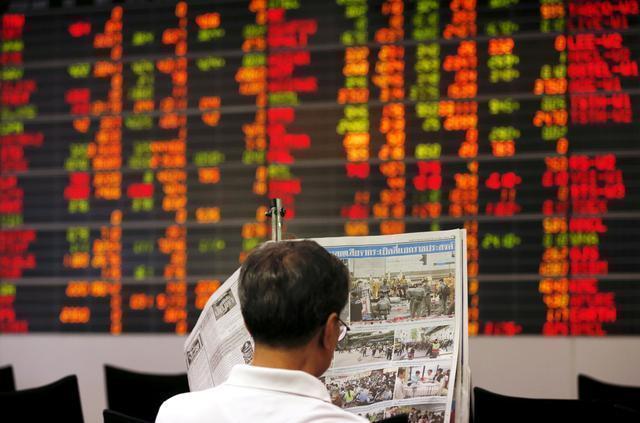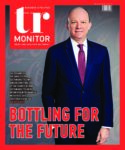Investors are allocating funds to developing countries such as Turkey in the aftermath of the Russian invasion of Ukraine, according to Treasury and Finance Minister Nureddin Nebati. “Turkey and South Africa are two important place where these funds will flow following the Russia-Ukraine crisis,” Nebati said in a televised interview with the national broadcaster TRT Kurdi.
Stressing that the amount in FX-Protected TRY deposit accounts has exceeded TRY 570bn, the Treasury and Finance Minister added: “60% of this has been converted from foreign exchange (FX). Global volatility is reflected on Turkey. The Federal Reserve has recently raised the interest rate. Even these two cases would normally affect FX rates in Turkey. Now, there is not this sensitivity in the country.”
Nureddin Nebati also stated that the U.S. wants to develop trade relations with Turkey. “There is a mutual will. Turkey also wants to develop trade relations. The U.S. is a large market. The U.S. market can be entered with clusters consisting of small companies. The Trade Ministry and business chambers are preparing for this,” the Treasury and Finance Minister noted.
Foreign Minister Mevlut Cavusoglu said Russia and Ukraine were nearing an agreement on “critical” issues and he was hopeful for a ceasefire if the two sides did not backtrack from the progress made so far, according to Reuters.
The U.S. has informally raised with Turkey the unlikely possibility of sending its Russian-made S-400 missile defense systems to Ukraine to help it fight to invading Russian forces, according to three sources familiar with the matter. U.S. officials have floated the suggestion over the past month with their Turkish counterparts, but no specific or formal request was made, the sources told Reuters. They said it also came up briefly during Deputy Secretary of State Wendy Sherman’s visit to Turkey earlier this month.
Regarding economic data for the week, the confidence indices and developments following the Treasury’s 2027 USD-based bond issuance will be closely watched. The consumer confidence index, which fell to its lowest level ever at 68.9 in December, rose to 71.2 in February after rising in January. We’ll find out on Wednesday morning what the index was in March. Every value below 100 is interpreted as a lack of confidence. March is a month where rising fuel prices, new price hikes, and the Russia-Ukraine war have set the agenda for Turkey. While the TRY lost some value in this process, CDS premiums rose sharply. Therefore, there is no significant development that is likely to increase consumer confidence. However, since the index is already at its weakest value ever, one should not expect any harsh downturns. On the other hand, we should see downward sloping but non-homogeneous changes in sector confidence indices.
DAILY AGENDA
Agricultural input price index surged by 57.26% in January, compared to the same month last year, according to the Turkish Statistical Institute (TurkStat). The index rose by 10.12% on a monthly basis.
The non-domestic producer price index (ND-PPI) jumped 106.13% in February, compared to the same month of the previous year, according to TurkStat. The ND-PPI increased by 2.35% on a monthly basis.
The Ministry of Culture and Tourism will announce foreign tourist figures for February.
Treasury and Finance Minister Nureddin Nebati will attend business sector meetings in Sanliurfa (5.30 pm).
Treasury and Finance Ministry will release domestic and external debt of the central government for February (5.30 pm).
IN OUR MAGAZINE THIS WEEK:
>> On the cover: Coca-Cola Icecek (CCI) CEO Burak Basarir is on our cover this week. CCI, one of the key bottlers for the Coca-Cola system, issued Turkey’s largest sustainability-linked bond to date with a relatively lower cost compared to the country reference borrowing rate in international markets. “Despite the general perception of elevated Turkey-related risks and investors’ less favorable view of emerging markets in general, we managed to differentiate CCI with our solid financials, strong record of operating in volatile markets, and resilient business model,” Basarir said. You can read more on pages 8-9.
>> Professor Ilter Turan adresses if ‘the war in Ukraine is a window of opportunity for Turkey’ on page 10.
>> Q&A: Nikolaus Meyer-Landrut, Head of the EU Delegation to Turkey. P. 11.
>> Chief Economist Gunduz Findikcioglu: Global interest rates and soft power. Pp. 12-13.
>> Legal Roadmap: Let’s challenge prejudices. P. 14.










